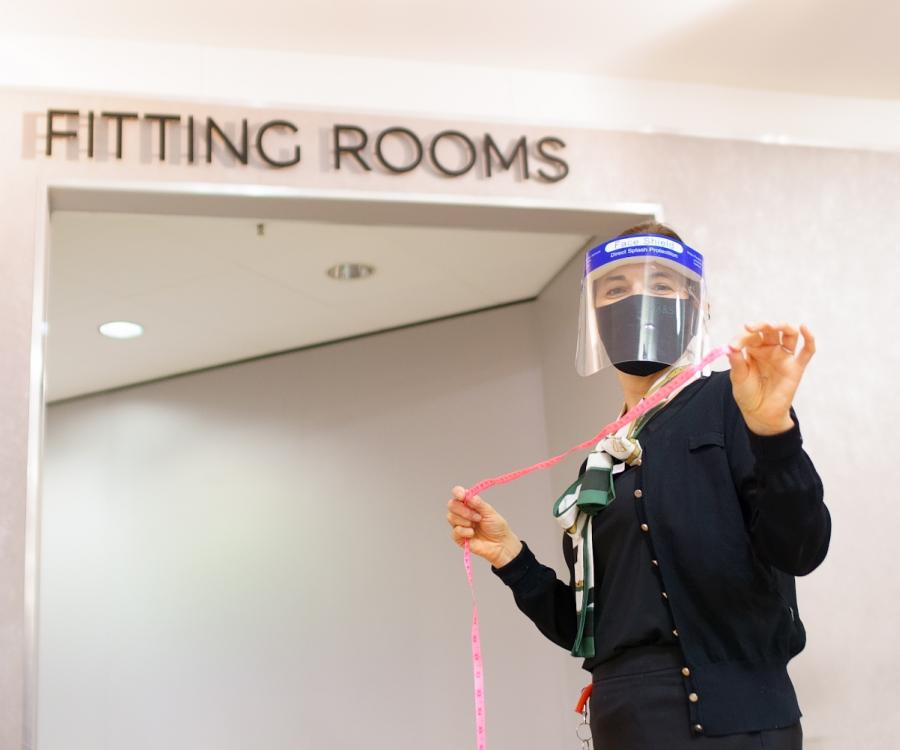Sooner or later, we all need to use it ... the restroom. And especially during a longer shopping trip in town. Yet many retailers don’t provide restrooms for their customers. Understandable but in the future a potential service shortfall that could affect customer satisfaction. But what are the alternatives?
"We have been asked not to let our customers use the employee bathrooms. Besides, they are located in the basement – and we simply cannot let our customers walk through our warehouse when we happen to be in charge of the store by ourselves," explains one sales assistant at Ernsting's Family in one of Bonn’s pedestrian retail areas. When asked what advice she gives to those customers who ask her about this urgent matter, she is at least able to offer two suggestions: there is one usable and clean public restroom at the other end of the street and another one right around the corner at a dm drugstore that offers a restroom as a service to its customers. Those who have shopped with children or have been in dire need of this highly appreciate this service. After all, it is far more relaxing when you know that a restroom is nearby and your three-year-old daughter is not forced to water the plants next to the customer parking spots at a Reno shoe store in Bonn, for example, because the “restroom at the gas station” alternative doesn’t seem too appealing. We should mention one thing here: the sales assistants are not terribly comfortable when they cannot offer their customers the use of a restroom. However, they keep answering the frequent requests in a patient and friendly manner.
Offering alternatives nearby
Many retailers share the same predicament. While larger stores simply don’t plan for bathrooms, which is something that could raise criticism, most smaller-sized retailers simply lack the space or financial and personnel capacities to set up customer restrooms next to employee bathrooms. Not to mention the resulting additional expenditure to clean the facilities. And this appears the biggest obstacle for many that still consider providing this service. After all, everyone knows that public toilets can often be nauseatingly filthy. Do retailers actually fall out of favor with customers in the future when they don’t provide this service? That might depend on the alternatives. Suggestions for accessible, public restrooms are helpful. This is why there are already projects that can assist them with this. Projects like the “Happy Toilets” service in Cologne for example.
The city of Cologne teamed up with the German Hotel and Restaurant Association (DEHOGA) and the Chamber of Commerce and Industry (IHK) to provide more public toilets in the city. The foodservice industry, private companies and facilities make their restrooms available to the public during opening hours without customers having to purchase or consume products at these venues. The city of Cologne reimburses them for the increased cleaning expenses while the facilities are also allowed to charge fees of up to one Euro for the use. Users can locate the next restroom via app.
"I think that’s an excellent idea," explains Michael Zygojannis of the IHK, "Because many customers prefer to use these toilets versus the available public toilets. People frequently tell us that there is room for improvement in this regard."
Gaining happy customers through service
Zygojannis believes this is an important service aspect for the city of Cologne and retailers. He adds, “Retail depends on customers feeling good. It is undergoing a big process of change and is, therefore, eager to facilitate a shopping experience. Service is paramount in this aspect. The use of restrooms is a part of this, but it still is in the distant future for most retailers." Things are already different with new shopping center concepts. “Shopping centers have already realized that service is retail’s key advantage. Brick-and-mortar retailers in cities can still learn a lot from these approaches." Andrea Becker from mfi Shopping Center Management GmbH emphasizes, "Every customer uses bathrooms. That’s why we have highlighted and better labeled sanitary facilities in our concepts."First approaches to mandatory restrooms in retail
So far, retailers are not obligated to provide bathrooms. However, it will become mandatory for supermarkets in Berlin to offer free sanitary facilities in the future. This is championed by the Senator for Urban Development and the Environment Andreas Geisel. Initially, this pertains to new buildings but later on, supermarkets of specific sizes will also be required to upgrade their facilities. His reasoning is the increasingly aging population. And let’s face it, that’s something that is in all of our futures.
Author: Natascha Mörs; iXtenso











